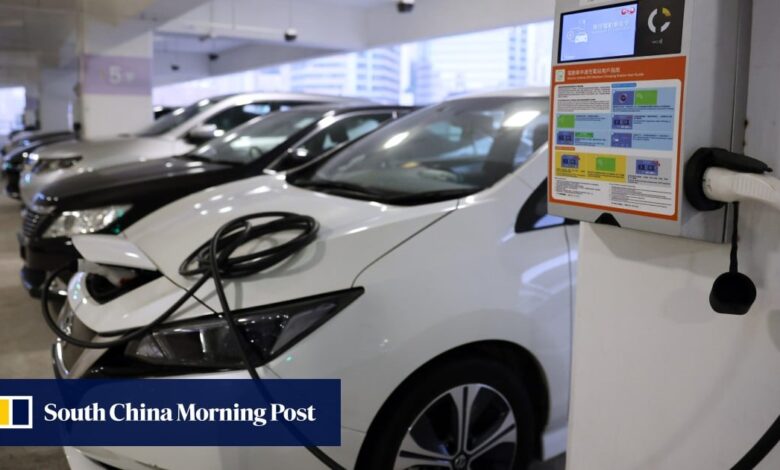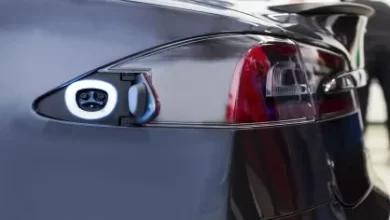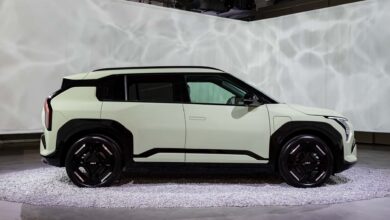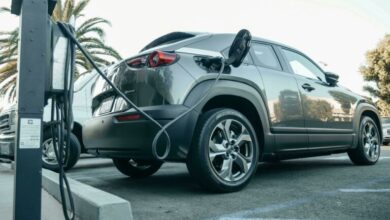Hong Kong to explore installing charging facilities at public-metered parking spaces when more electric vehicles on road

“Despite the high ratio of electric vehicles in new cars, the overall ratio is still low. Also, Hong Kong has little parking space. We do not plan to roll out a relevant scheme at the current stage,” Tse told a radio show. “When the ratio of electric vehicles increases, installing charging facilities in public metered parking spaces will be a direction.”
Lawmaker Gary Zhang Xinyu, a member of the Legislative Council’s environmental affairs panel, said the government’s argument that the low adoption rate of electric vehicles was a reason not to press ahead was not entirely valid, given there would be no more petrol-powered cars available for sale after 2035.
“It can be expected that there will be an acceleration in electric vehicle demand in the next 10 years,” Zhang said. “The challenge lies in the significant investment and higher capital costs associated with installing charging stations across metered parking spaces due to the city’s tight financial situation.”
According to official data, the proportion of electric private cars among newly registered vehicles rose from 6.3 per cent in 2019 to 64.1 per cent last November. As of February, 9 per cent of vehicles in the city, or 83,100, were electric.
Zhang added he believed that once a feasible commercial model was established, the government would be able to recover the capital cost of installing the charging stations.
“I am confident that operational concerns will not be as significant, especially considering the potential for revenue generated through charging services,” he said.
Fleet of 200 e-taxis set to hit Hong Kong roads by March under deal with BYD
Fleet of 200 e-taxis set to hit Hong Kong roads by March under deal with BYD
Ringo Lee Yiu-pui, honorary life president of the Hong Kong, China Automobile Association, argued that if there was insufficient charging infrastructure, people would be reluctant to consider going green in driving.
“The policy should involve the government taking the lead in providing incentives for people to switch to electric vehicles,” Lee said. “Having an increased number of charging stations is exactly what is needed to speed up the proliferation of electric vehicles.”
In January, Tse told the legislature the government would not install charging facilities near existing public-metered parking spaces after considering the electricity supply, space constraints, possible traffic impact and other drivers’ parking needs.
The minister noted at the time the government had installed 11 medium chargers in four public open car parks under a pilot scheme, which showed that the facilities performed well outdoors.
The administration last October pledged to expand the network of charging facilities in public and private parking spaces to 200,000 by mid-2027.
From appliances to minibuses: Hong Kong firm goes green with 5 electric vehicles
From appliances to minibuses: Hong Kong firm goes green with 5 electric vehicles
Tse said on Sunday the government was planning to install electric vehicle chargers at existing petrol-filling stations.
He added that the administration would look into accelerating the development of electric commercial vehicles, namely buses and taxis, while the situation for trucks would be more complicated as it was subject to technological progress.
Chief executive of environmental organisation Friends of the Earth Hong Kong Jeffrey Hung Oi-shing said installing charging facilities in public-metered parking spaces was the right direction, given many residential estates and shopping malls had been equipped with such facilities.
“If multiple charging facilities are located in the same location, it may increase the burden on the power grid and the need for adjustments in infrastructure,” Hung said.
“But I believe that power companies should be capable of addressing these issues and finding solutions to accommodate the increased demand for electricity from electric vehicles.”



